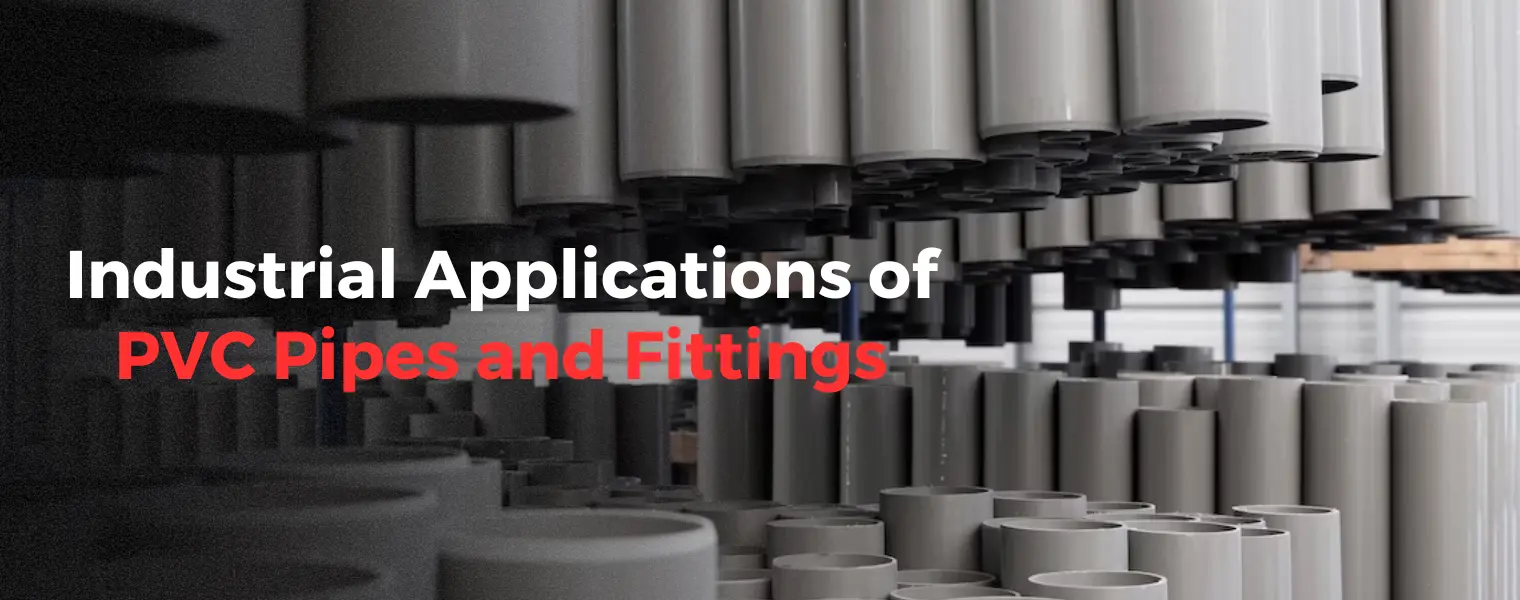
In the realm of industrial infrastructure, the choice of materials is paramount. Durability, versatility, and cost-effectiveness are key considerations when selecting piping solutions. PVC (Polyvinyl Chloride) pipes and fittings have emerged as a game-changer in industrial settings, offering a wide array of benefits and applications. In this blog, we will explore the diverse industrial applications of PVC pipes and fittings and how they are transforming the landscape of various sectors.
PVC pipes and fittings are widely used in chemical processing plants due to their exceptional chemical resistance. They can transport a variety of corrosive substances, acids, and bases without deteriorating or compromising the integrity of the system. This makes PVC a preferred choice for conveying chemicals in a safe and reliable manner.
Water treatment facilities rely on PVC pipes for the distribution of clean and treated water. PVC's resistance to biological growth, corrosion, and chemicals ensures that the water quality remains uncompromised. Additionally, PVC fittings provide leak-proof connections, reducing water loss and maintenance costs.
In the mining industry, where harsh conditions and abrasive materials are the norm, PVC pipes and fittings offer durability and reliability. They are used for slurry transport, mine dewatering, and ventilation systems. PVC's resistance to abrasion and corrosion ensures a longer service life in these demanding environments.
Agriculture depends on efficient irrigation systems, and PVC pipes and fittings are integral components of such systems. PVC is lightweight, making it easy to handle and install in agricultural settings. It also resists damage from exposure to sunlight, ensuring the longevity of irrigation systems.
In the food and beverage industry, where hygiene and sanitation are paramount, PVC pipes and fittings are the preferred choice. They are non-toxic, resistant to bacterial growth, and easy to clean. This makes them ideal for transporting potable water and food-grade materials.
PVC pipes find extensive use in construction projects, including sewer systems, stormwater management, and underground utilities. Their ease of installation and durability make them a cost-effective solution for infrastructure development.
The oil and gas sector employs PVC pipes and fittings for various applications, such as wastewater disposal, venting systems, and chemical transport. PVC's resistance to corrosion and its ability to handle different fluids make it suitable for these critical tasks.
Across various manufacturing industries, PVC pipes and fittings play a vital role in the conveyance of fluids, cooling systems, and ventilation. They are known for their efficiency, durability, and cost-effectiveness, making them a preferred choice in industrial settings.
PVC pipes and fittings have become indispensable components in a wide range of industrial applications. Their versatility, durability, and resistance to corrosion and chemicals have earned them a reputation as a reliable and cost-effective piping solution. As industries continue to evolve, PVC's role in facilitating efficient processes and maintaining the integrity of systems is set to grow. The industrial landscape is being transformed by PVC, and its applications continue to expand, making it a material of choice for countless industrial professionals. Polyfab provides the best PVC pipe s and PVC fittings Contact us to know more.